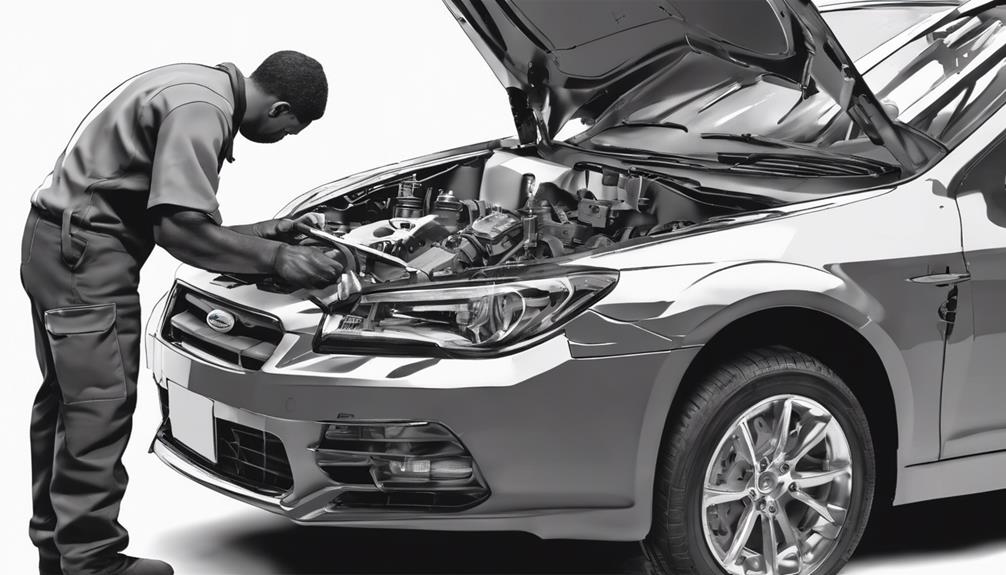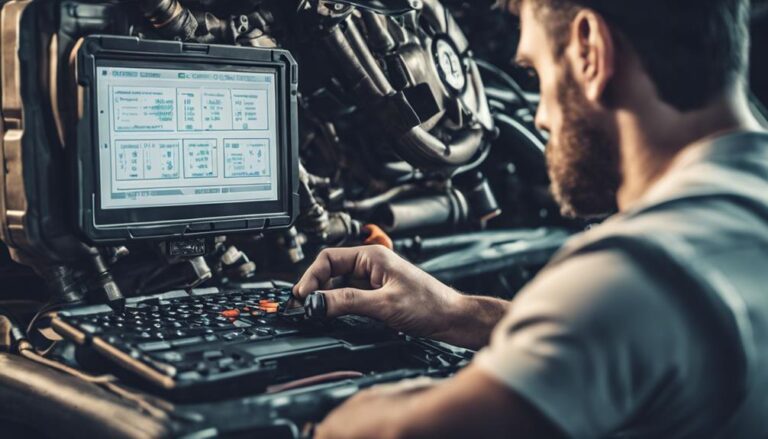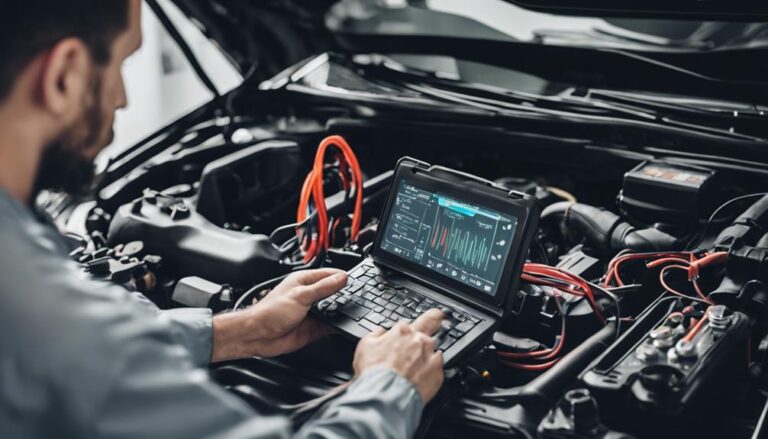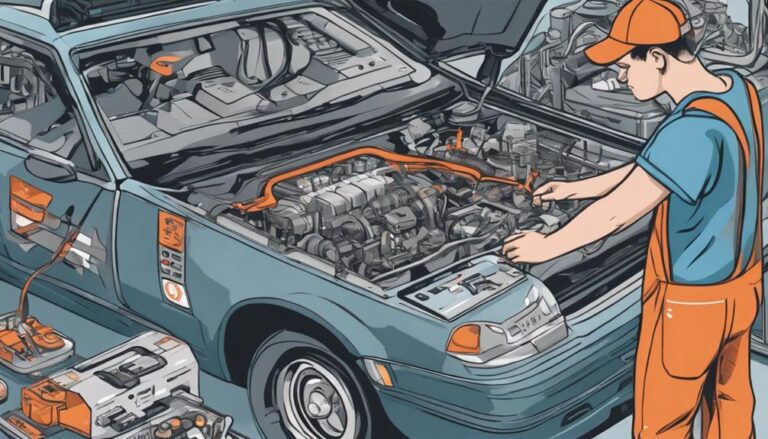Top Engine Diagnostics and Repair Tips
When it comes to unraveling the mysteries under your hood, understanding engine diagnostics is akin to deciphering a complex puzzle. From deciphering cryptic warning lights to tackling elusive engine noises, mastering the art of engine repair is a skill every vehicle owner should possess.
But where do you start on this journey towards engine enlightenment? Let's explore some key insights that could be the key to unlocking your engine's potential and ensuring its longevity.
Key Takeaways
- Use advanced diagnostic tools for accurate pinpointing of engine issues.
- Regular maintenance like oil changes and air filter replacements enhance engine health.
- Seek professional help for complex engine problems to avoid further damage.
- Inspect spark plugs, ignition coils, and fuel system components systematically for optimal performance.
Common Engine Problems and Diagnostics
When troubleshooting common engine problems, a skilled technician utilizes advanced diagnostic tools to pinpoint issues accurately.
Compression testing and spark plug analysis are essential steps in diagnosing engine performance issues. Low compression levels can indicate worn piston rings or cylinder walls, leading to power loss and inefficient operation. Faulty spark plugs can cause misfires, rough idling, and poor fuel economy.
Vacuum leaks and fuel injector malfunctions are also common culprits for engine troubles. Vacuum leaks can result in air entering the engine without being measured by the airflow sensor, leading to a lean fuel mixture and rough running conditions. Fuel injector issues, such as clogs or leaks, can disrupt the fuel delivery process, affecting engine performance.
DIY Vs. Professional Engine Repairs
For optimal engine performance and reliability, understanding the distinction between DIY and professional engine repairs is crucial. DIY repairs can save money, making tasks like changing spark plugs or air filters manageable. However, professional repairs become essential for complex issues such as internal component failures or advanced diagnostics. ASE-certified technicians possess the expertise, tools, and training required to handle intricate engine repairs effectively. While DIY repairs may offer cost savings, they could void warranties or cause further damage if not executed correctly, highlighting the importance of professional services for critical engine issues.
The pros of DIY repairs include cost-effectiveness and the satisfaction of fixing minor issues independently. On the other hand, professional repairs guarantee precision in troubleshooting techniques, ensuring accurate diagnosis and efficient resolution of complex engine problems. Knowing when to utilize DIY methods and when to seek professional help can prevent expensive errors and maintain optimal engine performance.
Step-by-Step Engine Repair Guide
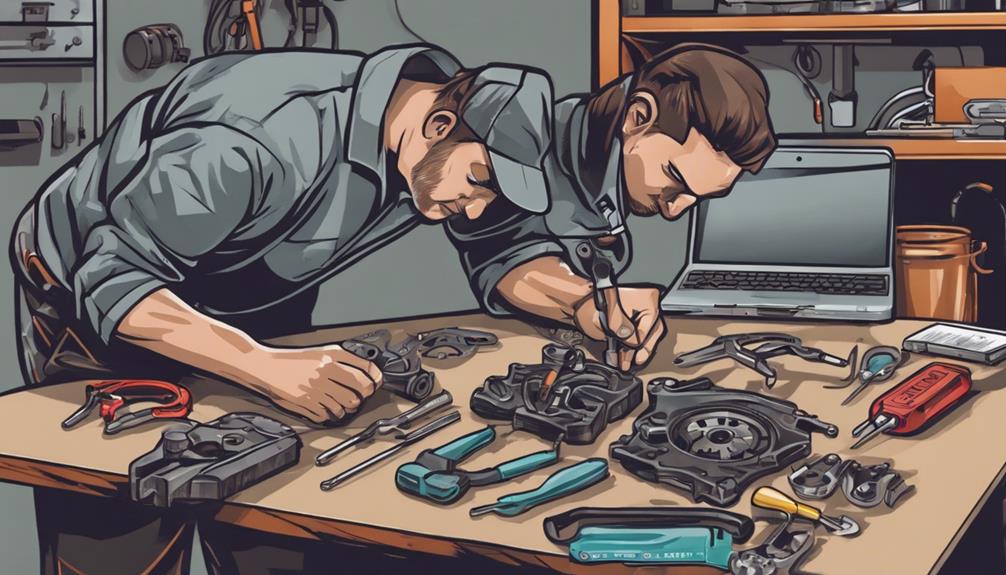
Begin by diagnosing the engine trouble codes using an OBD2 scanner for precise identification of the issue. When following the engine diagnostic process, remember these key engine troubleshooting techniques:
- Refer to the manufacturer's repair manual: This guide provides step-by-step instructions for troubleshooting and fixing engine problems efficiently.
- Inspect systematically: Check spark plugs, ignition coils, and fuel system components in a structured manner to pinpoint the root cause of the issue.
- Utilize diagnostic tools: Employ tools like multimeters, compression testers, and vacuum gauges for thorough analysis during the repair process.
- Test components before reassembly: Ensure that all repaired components are functioning correctly before putting everything back together.
Conduct a final diagnostic scan to confirm that the engine runs smoothly post-repair. By methodically following these steps, you can effectively navigate the engine repair process with confidence.
Engine Maintenance Tips and Tricks
To ensure your engine operates at its best, implementing regular maintenance practices is essential for longevity and optimal performance. Regular oil changes every 5,000-7,500 miles are crucial to keep your engine running smoothly. Checking and replacing air filters every 12,000-15,000 miles maintains fuel efficiency and prevents engine strain.
Monitoring coolant levels and maintaining the radiator can prevent overheating and potential engine damage. Spark plugs should be inspected and replaced every 30,000 miles to ensure smooth ignition and efficient fuel combustion. Don't forget to regularly check and maintain drive belts and hoses to prevent breakdowns and ensure proper engine operation.
These preventive engine care practices are vital for the health of your engine. Utilize engine diagnostic tools to troubleshoot any issues promptly and optimize engine performance. By following these maintenance tips and utilizing the right tools, you can keep your engine in top condition for years to come.
Expert Engine Services in Chicago
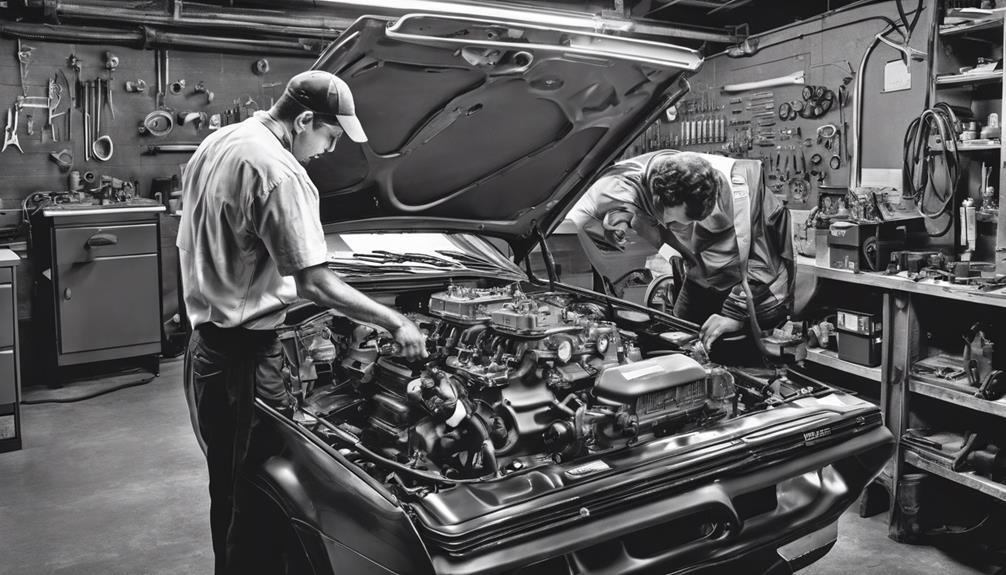
With a team of ASE-certified technicians at Certified Automotive in Chicago, you can expect expert engine diagnostics and repair services tailored to your vehicle's specific needs for optimal performance. When it comes to engine tuning and performance enhancements, our technicians leverage advanced diagnostic tools to pinpoint issues accurately and efficiently. We prioritize fuel system efficiency to ensure your vehicle operates at its best. Here's what you can expect from our expert engine services in Chicago:
- Precise engine tuning to boost performance and efficiency.
- Thorough fuel system inspections and optimizations for peak operation.
- Customized solutions that address your vehicle's unique requirements.
- Transparent communication and detailed explanations of recommended repairs.
At Certified Automotive, our commitment to excellence and decades of experience set us apart as a premier engine service provider in Chicago. Trust us to deliver top-notch services that keep your engine running smoothly and efficiently.
Frequently Asked Questions
How Much Should an Engine Diagnostic Cost?
For an engine diagnostic, costs vary from $50 to $150. Some shops offer free diagnostics. Advanced tools could increase the price. Remember, comparing costs and services is crucial. Waived fees may apply if you opt for repairs at the same shop.
Will a Bad Engine Come up on a Diagnostic Test?
Yes, a bad engine will show up on a diagnostic test. Engine performance issues trigger diagnostic trouble codes which reveal underlying problems. With modern tools, even hidden concerns are identified. Trust the diagnostic results to guide timely repairs and prevent further damage.
How Do You Diagnose Engine Problems?
To diagnose engine problems, start by checking spark plugs and fuel injectors. Listen for unusual engine noises and use diagnostic tools like OBD2 scanners. Conduct visual inspections for leaks, loose belts, and worn-out parts.
What Is the First Thing That One Should Check if an Engine?
When your engine fails to start, the first thing you should check is the fuel system. Ensure there's fuel reaching the engine. If that's fine, move on to the ignition system. Check spark plugs and wiring for any issues.
Conclusion
Now that you have the knowledge and tools to diagnose and repair common engine problems, you can ensure your vehicle runs smoothly and efficiently. Remember to regularly maintain your engine to prevent costly repairs down the line.
Whether you choose to tackle DIY repairs or seek professional help, staying proactive in addressing engine issues will extend the life of your vehicle. Drive with confidence knowing you can handle any engine problem that comes your way.

